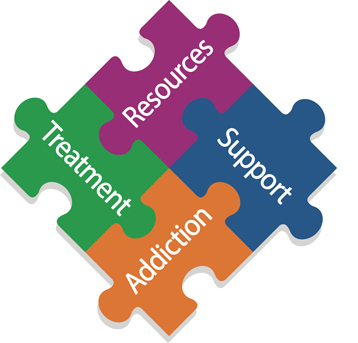Intensive meth addiction treatment combines detox and relapse prevention.
Intensive meth addiction treatment combines detox and relapse prevention.
Blog Article
Recognizing Dependency Therapy: Checking Out Reliable Programs for Alcohol Dependency Recuperation and Mental Wellness Assistance
Launching the trip toward recovery from alcohol dependency involves an extensive method that resolves both the physical and mental aspects of reliance. Mental Health Treatment. Clinical detoxing serves as the foundational action, securely handling withdrawal signs and symptoms under expert supervision. Concurrently, psychiatric therapy and medication-assisted therapies are customized to alleviate the underlying psychological health and wellness issues, frequently intertwined with addiction. This double technique not only supports the specific yet likewise sets the phase for reviewing the incorporation of holistic treatments and support systems crucial for long-term soberness.

The Role of Clinical Detoxification in Managing Alcohol Withdrawal
Clinical detoxification plays a crucial function in the monitoring of alcohol withdrawal, acting as the initial action in the journey in the direction of recuperation. This process very carefully keeps track of and deals with the severe physical signs and symptoms of withdrawal that happen when a specific quits consuming alcohol. The primary purpose is to stabilize the patient literally and reduce potential wellness risks related to withdrawal, such as seizures and delirium tremens.
Clinical professionals often administer medications to ease symptoms, take care of pain, and protect against issues. The regulated setting makes certain security, addresses nutritional shortages, and prepares individuals for the next phases of dependency treatment. Effective cleansing is vital, as it creates the structure for more healing interventions, concentrating on long-term healing and relapse prevention.
Psychotherapy Techniques for Double Medical Diagnosis Treatment
Complying with the stablizing given by clinical detoxing, psychotherapy comes to be a vital part in treating individuals with a double diagnosis. Cognitive Behavior Treatment (CBT) is frequently employed to resolve maladaptive thinking patterns, helping people comprehend and manage their habits and feelings successfully. Dialectical Behavior Modification (DBT), which highlights the advancement of dealing abilities to handle anxiety, regulate feelings, and boost relationships, is specifically beneficial. Integrative strategies, incorporating elements from numerous therapeutic methods, tailor therapy to specific requirements, boosting the performance of twin medical diagnosis monitoring. Through these psychotherapeutic approaches, individuals gain understandings right into their addictive behaviors and psychological wellness issues, cultivating a holistic recuperation process and substantially improving their lifestyle.

The Value of Medication-Assisted Treatment (MAT)
While psychotherapy takes on the emotional elements of dependency, Medication-Assisted Treatment (FLOOR COVERING) plays a just as crucial role in addressing the physical difficulties. MAT uses FDA-approved medicines, such as naltrexone, buprenorphine, and methadone, to support mind chemistry, block the euphoric impacts of alcohol, and reduce cravings, leading the method for a lasting recovery. These medicines, when integrated with behavioral treatments, improve treatment efficacy, decrease the danger of regression, and aid maintain long-term sobriety. By supporting the organic basis of addiction, floor covering addresses the detailed health demands of people, assisting in enhanced outcomes in recovery programs. This integrated method guarantees a more durable structure for recovery, stressing the requirement of dealing with both psychological and physical wellness parts in addiction treatment.
Integrating Holistic Treatments Into Alcoholism Healing
Although Medication-Assisted Therapy (FLOOR COVERING) is vital, incorporating holistic treatments can dramatically improve the healing procedure for those fighting alcohol addiction. Alternative therapies encompass an array of non-medical recuperation techniques that focus on recovery the mind, body, and spirit. These may consist of yoga exercise, reflection, acupuncture, and art treatment. Each of these methods intends to enhance mental health and wellness, decrease stress and anxiety, and boost overall well-being, consequently visit this web-site sustaining the psychological and psychological elements of recuperation. By including such treatments, treatment programs can offer a more comprehensive approach that not just resolves the physical signs and symptoms of addiction yet additionally fosters inner peace, self-awareness, drug and rehab center and emotional durability. This combination helps people create much healthier coping mechanisms and a stronger structure for long-term sobriety.
Browsing Assistance Equipments and Community Resources for Sustained Recovery
After addressing the person's alternative requirements in alcohol dependency healing, attention should likewise be given to outside factors that contribute to sustained soberness. Effective recuperation programs highlight the relevance of building strong networks, which can include assistance teams like Alcoholics Anonymous, family members participation, and healing coaching. Sustained healing is therefore seen not just as a person's journey however as a community-supported process, promoting an environment where regular healing is nurtured and celebrated.
Verdict
To conclude, effective alcoholism recovery anchor programs incorporate a multifaceted technique that consists of clinical detoxification, psychotherapy, and medication-assisted therapy. Incorporating alternative therapies and leveraging support group are crucial for dealing with both physical and mental health obstacles. Such extensive care not only helps handle withdrawal signs however also supports lasting soberness and psychological health, thereby improving a person's capacity to lead a much healthier and more satisfying life post-recovery.
Report this page